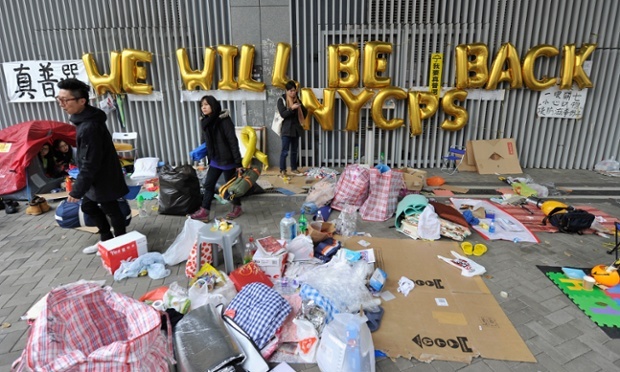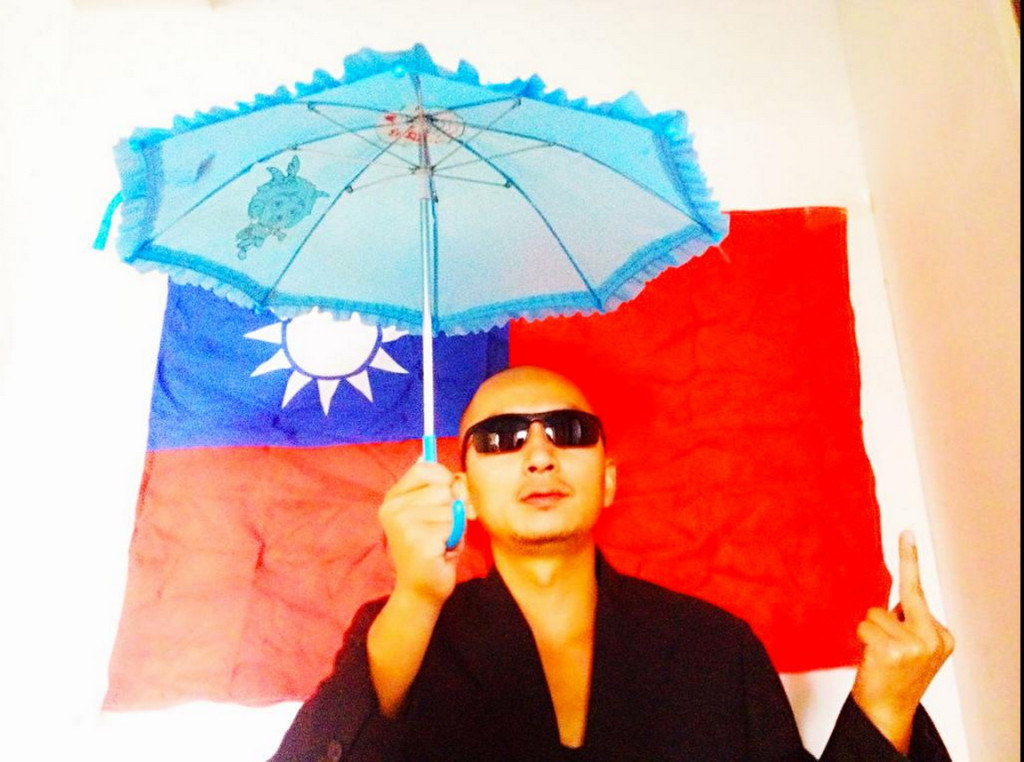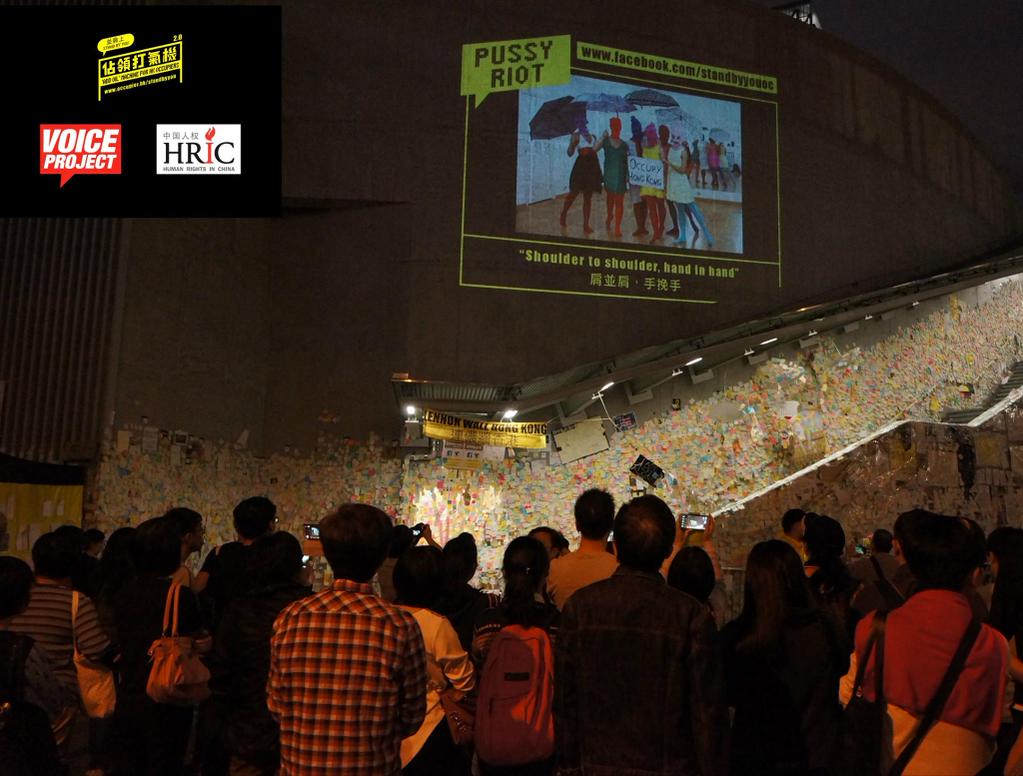“You are only clearing a camp… You can’t clear the idea,” reads a message written across an eight-lane Hong Kong highway occupied by pro-democracy protestors until the camp’s recent clearance by police on Dec. 11th.
Protestors engaged in passive resistance, remaining mute and non-confrontational as police dissembled the camp, citing their greater optimism for the movement as a whole.
RT @W7VOA: RT @mia_lamar: Police start to remove students from the sit-in; they remain mute &don’t resist #OccupyHKpic.twitter.com/fZXdC0XXtn
— tania branigan (@taniabranigan) December 11, 2014
The end of the 10-week occupation of Hong Kong’s Admiralty District is surely a setback for the democracy movment there, but protestors are trying to find ways to develop new tactics in a city with a newly energized culture of activism.
“I am much more hopeful than ever before because now we have a new generation of pro-democracy protesters,” said activist leader Martin Lee prior to his arrest by officials.
Echoing this sentiment was protest leader Alex Chow, saying in an interview with Radio Free Asia, “The Occupy Movement has been very effective at awakening our citizens… Hong Kong people are willing to pay the price for democracy.”
In October, prolific artist Wang Zang was famously arrested for tweeting a picture of himself with an umbrella in an attempt by the government to censor expressions of solidarity with the Hong Kong activists.
The expressions of solidarity came from across the world, with one initiative co-sponsored by The Voice Project, Human Rights In China, and the Hong Kong art collective Add Oil Machine projecting images of Peter Gabriel, Pussy Riot, and others onto buildings at the protest site with messages of solidarity.
On the ground, Canto-Pop singer Denise Ho Wan-see was arrested by police on December 11 at a sit-in at the protest’s main hub in the Admiralty District.
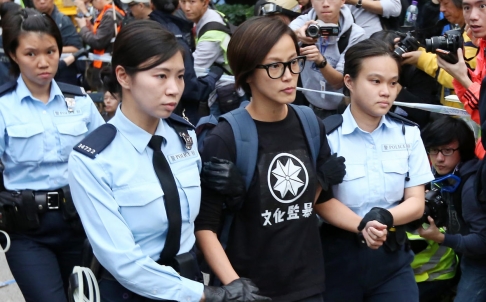
Ho, pop singer and co-founder of Hong Kong Shield, a student activist group, was arrested as the crowd cheered “Civil disobedience, we are fearless!”
Ho said, regarding her involvement in the activist movement, “[Protesting] is part of my responsibility as an adult and celebrity, to fill the responsibility of civil disobedience.”
Local media reports that Chinese government officials have ordered the removal of any mention in the media of 47 celebrities believed to support the protests, ranging from pop singers to martial artists.
The government’s censorship of those in support of the protests has had far-reaching consequences, as in the now-famous case of saxophonist Kenny G’s frantically obsequious efforts to distance himself from the protests after tweeting a photo at the encampment, and afollowing a warning from the Chinese government. Kenny G’s removal of the picture and “clarifying” statements were met with disappointment and derision by many of his Hong Kong fans on social media.
Voice Project executive director Hunter Heaney says those warnings may have kept other artists away as well. “You didn’t see a huge turnout from the usual Western celebrity-activist types in support of Hong Kong as the ugly reality is that China is such a huge market for many of them – for musicians selling music, for actors selling movies – and warnings from the Chinese government that things could be made difficult for them are taken seriously. It’s much easier to support a cause when it helps your brand and doesn’t affect your bottom line. For us and the people who watch these things, you do get a chance to see who the real principled people are out there, like Peter Gabriel, Pussy Riot and Denise Ho.”
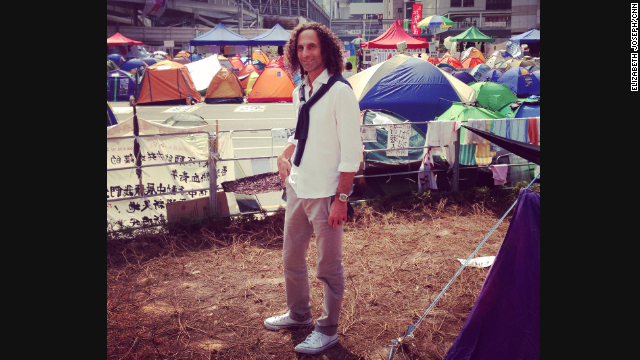
Kenny G, photographed in front of Hong Kong’s protest camp, has asserted his indifference to the movement (Elizabeth Joseph, CNN.)
Hong-Kong born Jackie Chan’s main commentary on the movement was worry for the protests’ economic impact.
As was reported in the South China Morning Post:
It’s all about money,” said critic Jimmy Pang Chi-ming.
China is a major entertainment market and celebrities have no choice but to remain either politically silent or pro-China in order to survive, Pang said. Of last year’s record global box office takings of US$35.9 billion, US$3.6 billion came from China, making it the world’s largest film market after North America.
And with major music markets in North America, Europe and Japan remaining stagnant or in decline, China has become the land of hope, even with its rampant copyright infringement.
“Do you dare to upset China? It could be a career suicide,” Pang said.
In contrast, the continuing courage and commitment of activist leaders has only further been demonstrated by their continued fight to build a democracy. The demonstrators have made it clear that the Umbrella Revolution is far from finished.

